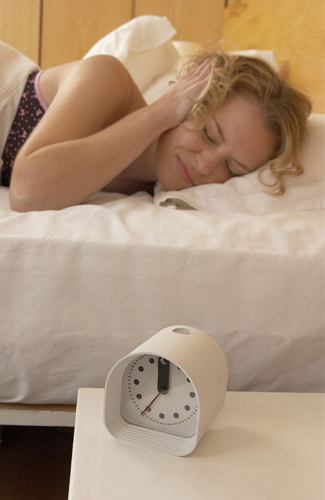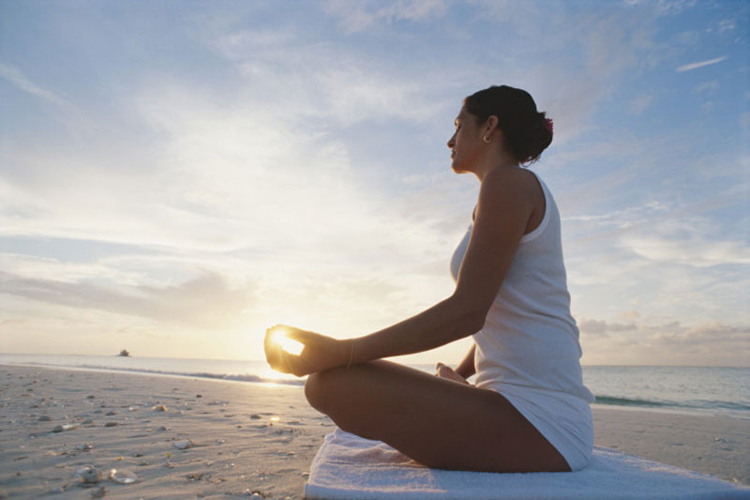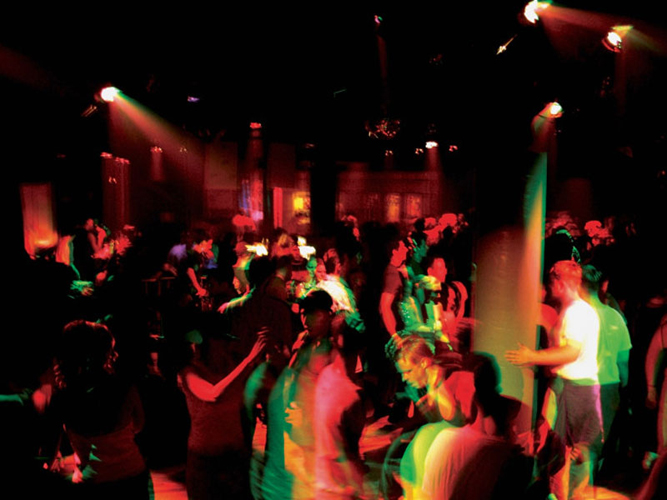| Q: |
What determines how much sleep I need?
|
| A: |
Our sleep requirement is determined by a number of factors,
including the amount of time spent awake, genetic factors, our age, and
our circadian rhythm which initiates sleep. All of these factors vary on
an individual basis, and explain why some people need more sleep than
others and why these requirements can change with age.
|
| Q: |
How does age and aging affect sleep needs?
|
| A: |
Newborns spend more than half their time asleep. Sleep needs
decline over the first 5 years, again during the teenage years, and,
finally, after the fifth decade. Sleep patterns also vary significantly.
Infants can go from being awake straight into REM sleep, and their
NREM–REM cycle is about 50–60 minutes. Children have the greatest
percentage of slow wave sleep, which decreases by up to 40 percent
between the ages of 10 and 20. Teens spend about 20–25 percent of sleep
time in REM sleep. In old age, slow wave sleep may be absent, especially
in men.
|
| Q: |
What is the difference between “night owls” and “early birds”?
|
| A: |
“Night owls” refers to those who have a natural predisposition to
staying up late and functioning well later in the day. “Early birds,”
on the other hand, get to bed early, wake early, and tend do their best
work in the mornings. The vast majority of people fall between these two
extremes. These differences are genetic and are caused by the circadian
clock genes. Small mutations in one, some, or all of them may produce
differences in the timing of our sleep. Subtle changes in the clock
genes may have helped human beings adapt successfully to life in
different environments with different levels of light.
|
Myth or truth?
Myth
“Everyone needs about 8 hours of sleep every night”
Truth
An adult requires an
average of 7.5–8.5 hours of sleep every night. However, this requirement
varies widely between individuals and depends on age, genetics, and the
amount of physical and mental activity. In very rare instances, some
people can get by with just 4 hours of sleep (as Napoleon Bonaparte
famously did), whereas some of us need 9–10 hours of sleep a day to
function properly (for example, Albert Einstein).

Night owls and early birds
The following
questionnaire is based on a longer questionnaire first published in 1976
and known as the Horne–Ostberg test. It explores whether you have a
tendency to function better toward the end of a 24-hour day or at the
beginning of one. Consider each question and choose the one response
that best describes you. When you have answered all the questions, add
up the score for each response. The final score will give you some
indication of whether you are more of an “evening” person or a “morning”
person.



| Q: |
Breakfast: how is your appetite in the first half hour after you wake up in the morning?
|
| A: |
Very poor
|
| A: |
Fairly poor
|
| A: |
Fairly good
|
| A: |
Very good
|
| Q: |
How do you feel for the first half hour after you wake up in the morning?
|
| A: |
Very tired
|
| A: |
Fairly tired
|
| A: |
Fairly refreshed
|
| A: |
Very refreshed
|
| Q: |
When you have no commitments the next day, at what time do you go to bed compared to your usual bedtime?
|
| A: |
Seldom or never later
|
| A: |
Less than 1 hour later
|
| A: |
1–2 hours later
|
| A: |
More than 2 hours later
|
| Q: |
You are starting a new fitness regime. A friend suggests joining
his fitness class between 7am and 8am. How do you think you’d perform?
|
| A: |
Would be in good form
|
| A: |
Would be in reasonable form
|
| A: |
Would find it difficult
|
| A: |
Would find it very difficult
|
| Q: |
At what time in the evening do you feel tired and in need of sleep?
|
| A: |
8pm–9pm
|
| A: |
9pm–10:15pm
|
| A: |
10:15pm–12:45am
|
| A: |
12:45am–2am
|
| A: |
2am–3am
|
| Q: |
If you went to bed at 11pm, how tired would you be?
|
| A: |
Not at all tired
|
| A: |
A little tired
|
| A: |
Fairly tired
|
| A: |
Very tired
|
| Q: |
One night you have to stay awake between 4am and 6am. You have no commitments the next day. Which suits you best?
|
| A: |
Not to go to bed until 6am
|
| A: |
Nap before 4am and after 6am
|
| A: |
Sleep before 4am and nap after 6am
|
| A: |
Sleep before 4am and remain awake after 6am
|
| Q: |
At what time of day do you feel your best?
|
| A: |
Midnight–5am
|
| A: |
5am–9am
|
| A: |
9am–11am
|
| A: |
11am–5pm
|
| A: |
5pm–10pm
|
| A: |
10pm–midnight
|
| Q: |
Do you think of yourself as a morning or evening person?
|
| A: |
Morning type
|
| A: |
More morning than evening
|
| A: |
More evening than morning
|
| A: |
Evening type
|
| Q: |
Suppose that you can choose your own work hours, but had to work
5 hours in a day. When would you like to START your working day?
|
| A: |
Midnight–5am
|
| A: |
3am–8am
|
| A: |
8am–10am
|
| A: |
10am–2pm
|
| A: |
2pm–4pm
|
| A: |
4pm–midnight
|